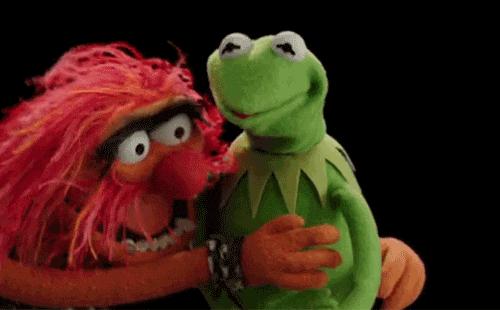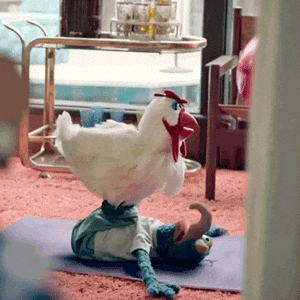These days at little blessings, I’m taken by the idea of saving the world. I hear a lot of folks troubled by how it’s falling apart—how one person’s strategy is flawed, how another’s is better, and besides, the world is falling apart.
I’m not sure about the integrity of any strategy other than love, so I’m going to promote that. The best part? It’s infinite, available, and when we feel it absolutely, I’m sure we save the world.
Here’s the Tao Te Ching on the topic:
See the world as your self.
Have faith in the way things are.
Love the world as your self,
then you can care for all things.
To see the world as ourselves, we rise to it. We let it become us just as completely as we are of it. Every experience the world offers is a gift. It wants us to open it carefully and cherish it.
Maybe the best gift came when I was very young. Let’s say small enough to hunker into the tiny backseat of my dad’s ‘62 Porsche. It was cozy, carpeted, contained. Smelled of gas and rubber and wine. No seatbelt. Just… supportive. And because my dad was of the drink-and-drive generation, it felt safe to huddle back there, eyes closed, focusing on the hum of tires on Navajo Road.
Anyhoo, it was my dad the driver who gave me the gift. (Despite everything, he was, evidently, a good driver; we always took the scenic route and always arrived intact.) The gift? A quote from Nietzsche, offered with apologies to all who shudder at the nihilists:
From life’s school of war, what does not destroy me makes me stronger.
As I grew into the meaning of Nietzsche’s idea—along with a personal recognition of my resilience (borne in part, surely, from our drives)—the quote became an inside joke between me and my dad.
By the time I was a teenager, it went something like this:
“Everything sucks,” I might say.
“And?” he’d ask.
“I’m not dead!”
We laughed a lot. My dad had the voice of a radio announcer—friendly, inquisitive, credible. His laugh entertained me for two reasons: it was boisterous for an adult, and it made his caterpillar mustache dive into his smile lines. Plus, I have a snort that made him laugh harder. Neither of us was shy about making noise.
While I was definitely death-obsessed as a kid, maybe it was our laughter that nudged me toward the nihilists. I wanted to know the source of our joke. And it’s true, as I read them, they did make me laugh… like a bully laughs at wimps.
It seemed to me they were making the weak choice. Resigning into meaninglessness felt like rejecting the worthiness of starlight’s travel or a wildflower’s wisdom on transience. Only very scared humans could miss the miracles kicking their bums daily. The nihilists led me to the existentialists, who I thought took themselves too seriously—but at least they were paying attention. From there, I found the absurdists, who consoled me with the idea that laughter in the face of suffering was, indeed, a wise response.
That wise response became a blessing—and a hard practice—when my dad died just after my 18th birthday.
I share this today as an invitation. Sure, consider what Nietzsche meant. But maybe, more importantly, let’s practice what my dad, Larry, and I did—resilience with laughter.
First, about that school of war… Nietzsche’s phrase is often misunderstood as suggesting that suffering itself makes us stronger. I disagree, and I think my dad would too.
We all suffer sometimes; that’s true. But it’s not about the suffering. It’s about our will to survive.
Nietzsche points to our resilience in response to challenges—our resilience strengthens us, not the challenge itself. Think of how a trainer urges, “Three more!” It’s not the tragedy of those last three reps that builds our muscles. It’s the fact that we do them. The power of our will overcomes the power of the challenge.
Sometimes, suffering weakens us for a long time. Fortunately, life is long, too. If we choose the power of will over the power of suffering, our decisions will make us stronger. We rise, again and again—higher each time.
So, in all that, what is there to laugh about?
Well… I call it the ultimate in weightlifting. I don’t know anything heavier to lift than the weight of woe we’ve carried for too long. We’ve become so committed to our burdens that we’re Olympians at holding them close. Each of us has a particular woe that’s earned us a gold medal.
Like, say, thanks to an old woe, I’m a champion disappearing artist. I’m good at making myself invisible when I sense I could be burdensome. These days—thanks to meditation, mentors, friends, and a kind partner—I understand it. So sometimes, instead of disappearing, I imagine ruining a game of hide and seek. When I instinctively want to hide, I call out my love. Maybe send a song or a silly gif or bitmoji. If you’ve received one, congratulations! That’s me… not hiding. Instead, seeking contact.
And really—especially Muppet gifs… yeah, they get me every time.
So, here’s the invitation:
What if we practice resilience and laughter together? What if we notice the weight we’ve been carrying and—just for a moment—share the cosmic joke? Not to dismiss suffering, but to remember: we’re still here. We’re alive. We have our will. And in life’s school of ups, downs, battles, and tragedies, we are not destroyed if we choose to rise.
And because we rise… maybe we are saving the world after all.
(Or at least discovering some really good Muppet gifs.)
I don’t know a better bunch of co-conspirators than you fine little blessings readers. The only people missing are the seven billion and ample change others who hold just the same perfection as you… so maybe share little blessings with a few of them? Or just a handful.
And if this resonated, maybe click the little heart below? It helps little blessings find its way to more people.




Very artistic! Light and to the heart of that which is heavy. Both as the way forward.
Also just found this jewel too:
“When I look inside and see that I am nothing, that is wisdom. When I look outside and see that I am everything, that is love. And between these two, my life flows.”
― Sri Nisargadatta Maharaj
Zowie!!!! Thanks for reflecting this truth ...
beautiful wisdom from the tao:
See the world as your self.
Have faith in the way things are.
Love the world as your self,
then you can care for all things.